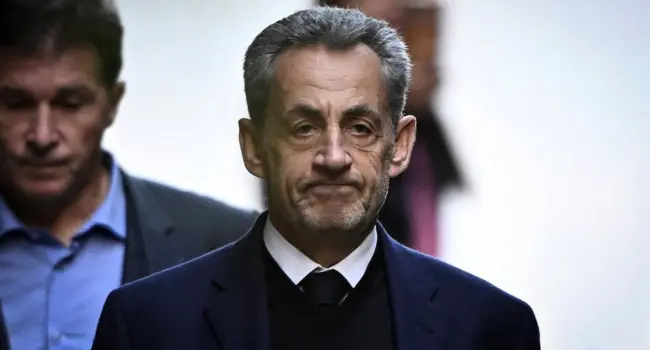France’s top appeals court on Wednesday reviewed the case of alleged illegal campaign financing against former president Nicolas Sarkozy, marking his last opportunity to avoid a second definitive conviction.
The Court of Cassation in Paris will decide whether a lower court was correct in convicting Sarkozy over his failed 2012 re-election campaign. If the ruling upholds the conviction, the 70-year-old former leader could face a six-month sentence, potentially served with an electronic bracelet.
Sarkozy, who served as president from 2007 to 2012, has faced a series of legal challenges since leaving office. Wednesday’s hearing comes after he was jailed last month in a separate case related to his 2007 campaign. In that trial, he was found guilty of allowing aides to solicit funds from Libyan leader Muammar Gaddafi, becoming the first post-war French president to serve jail time. He spent 20 days behind bars before being released on November 10 under judicial supervision, pending appeal.
In another case, Sarkozy was convicted in December last year of attempting to extract favors from a judge. He served that sentence with an electronic ankle tag, which was removed in May.
Campaign finance allegations
The 2012 campaign case focuses on accusations that Sarkozy’s right-wing party collaborated with the public relations firm Bygmalion to conceal the true cost of his re-election bid. Prosecutors say Sarkozy spent nearly 43 million euros, almost double the legal limit of 22.5 million euros.
Although he was not implicated in the alleged double-billing system used to cover campaign expenses, Sarkozy was held accountable as the beneficiary of illegal financing. He has denied “any criminal responsibility,” calling the allegations “lies.”
A lower appeals court confirmed his conviction last February, but the Court of Cassation could order a retrial if the appeal is upheld.
Political influence and public rofile
Despite his legal troubles, Sarkozy remains an influential figure on France’s right. He was received by President Emmanuel Macron before his imprisonment, and a meeting with Justice Minister Gérald Darmanin inside Paris’s La Santé jail drew criticism. A court later barred him from seeing the minister and other officials as part of release conditions.
Two weeks after his release, Sarkozy announced he would publish a book next month recounting his experience of serving time in jail.
AFP


